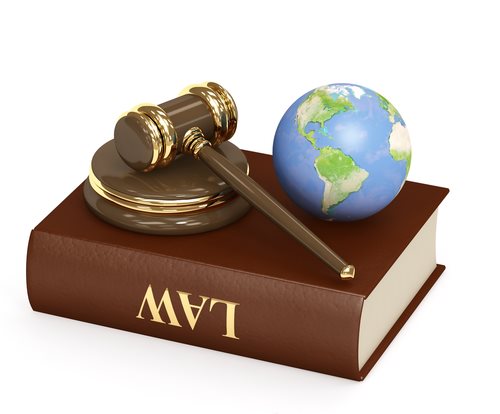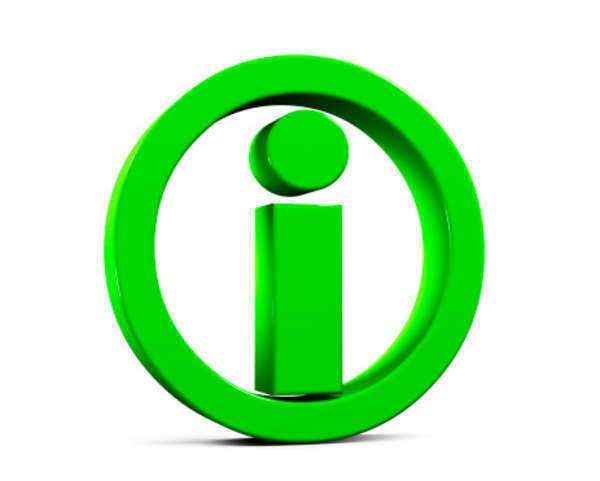Agency Powers & The Constitution



 What are Consumer Reports?
What are Consumer Reports?
Although a titular publication with regard to the review and analysis of products and services offered for purchase within the commercial market shares the name ‘Consumer Reports’, the notion of Consumer Reports within a legal spectrum speaks to the feedback, analysis, review, and reporting offered on the part of the consumer populace existing within a commercial market.
Although the institution of Consumer Reports is neither considered to be a legally-mandated instrument, nor a governmental regulated activity, a bulk of accredited operations providing Consumer Reports do so in order to oversee the protection of consumer rights in tandem with the investigation of commercial activity in which consumers engage:
Consumer Reports Involving Commercial Policy
These types of Consumer Reports will typically include the investigation of legality and ethics latent within all existing commercial, business, corporate, merchandising, and retail operations. Within the protocols set forth within consumer Law, presumed fraudulent and criminal activity with regard to policies and activities undertaken by vendors may be reported within Consumer Reports – such as:
False Advertising is the purposeful attempt of a commercial vendor to misrepresent products and services offered with the intent to defraud consumers
Predatory or exploitative commercial activity, ranging from unfair service practices, deceptive marketing, and consumer fraud
Consumer Reports Reviewing Products and Services
Consumer Reports involving the reviews of products and services provide feedback set forth by fellow consumers with regard to the integrity of products available on the commercial market, as well the methods undertaken by vendors to rectify faulty products:
Product Liability addresses the legality inherent in the structural integrity and safety with the regard to the manufacturing of a product or service; this may also include the examination of injuries sustained by consumers through use of a particular product or service
Within many Consumer Reports, the mention of recalls – which are classified as faulty or flawed products whose presence on the commercial market poses the threat of injury, damage, or death to users
Consumer Reports including the reviews and analysis of warranties provided in order for vendors to substantiate the viability and integrity of a product or service available for purchase; Consumer Reports reviews of warranties may include supplementary insurance policies, that undertake the method of replacement and adjustment with regard to faulty products
Consumer Reports and Legality
Consumer Reports also provide legal resources to individuals who feel as though they have been the victims of a violation of consumer rights; in many cases, Consumer Reports will include any past history experienced with regard to ongoing illicit or unethical behavior undertaken by a commercial operation. In the event that you feel as though you have been the victim of a consumer or commercial-based crime, you may contact the National Crime Prevention Council through their telephone number: (202) 466-6272.

 What are Consumer Affairs?
What are Consumer Affairs?
Consumer Affairs is considered to be a general catchall term that includes the legality that exists within the commercial market. Within the commercial market, two primary entities exist that participate in the facilitation of commerce; these parties are vendors and consumers.
However, the notion of Consumer Affairs is quite vast, which results in the topics and procedures – in addition to the focus and statutory analysis – taking place within commerce to retain an expansive nature. As a result, institutions specializing in Consumer Affairs will typically vary within nature, practice, and subject matter:
Consumer Affairs for the Protection of Consumer Rights
Within the scope of the commercial market, prospective criminal activity varying both in nature, as well as severity may take place. Consumer Affairs institutions rooted within the investigation and prevention of consumer-based crimes may undertake measures to not only report ongoing commercial crime to the proper authorities, but also provide the general consumer populace with pertinent information; the following crimes are amongst the most commonly reported by such Consumer Affairs institutions:
Fraud – namely fraud taking place within a commercial setting – is classified as the purposeful and intentional misrepresentation of a product or service on the part of a commercial vendor with the expressed intention of deceiving a consumer; within the notion of consumer fraud investigated by the vary institutions of Consumer Affairs may include product misrepresentation, false advertising, and faulty products that do not adhere to their manufacturer’s agreement
Consumer Affairs for the Prevention on Monopolized Commercial Markets
As per the events transpiring in conjunction with both the Sherman Antitrust Act, as well as the Clayton Antitrust Act, unregulated commercial activities retain the ability to drastically exploit and damage the commercial populace; the monopolization of a commercial market not only disallows for consumer agency and choice, but also may place a consumer under duress to engage in purchase – as a result, Consumer Affairs investigating and preventing commercial monopolization provide consumers with the expressed protection of rights:
In the event that a commercial operation or business endeavor threaten to encompass an entire market, which results in the prevention commercial competition, the prospect exists that consumers may engage in purchase as a result of force in lieu of choice
A latent risk within commercial monopolization – as stated by reports set forth by Institutions of Consumer Affairs, mandate that the prospect of exploitative pricing strategies, as well as the unethical control of the entirety of a market
 What are Consumer Complaints?
What are Consumer Complaints?
Consumer Complaints are classified as grievances and dissatisfaction set forth on the part of the consumer responsible for the purchase of a particular product or service within the commercial market, which is defined as the venue in which the consumer law process and procedure regulates the facilitation of business activities.
The nature of Consumer Complaints is expansive
Within the realm of consumer law – in addition to the various institutions and legality employed in order to protect the rights of a consumer engaging within the commercial marketplace, resides the fundamental precept in which the statutory legality inherent within commercial and consumer activity be preserved.
Consumer Law is the legal field whose primary jurisdictional responsibility is the regulation, oversight, and review of any and all actions undertaken on a commercial basis involving interaction between consumers and vendors; consumer complaints are typically measured in accordance with the statutory legislation expressed within consumer law
Commercial Law is legal field responsible for the regulation of a variety of businesses, methods of commerce, and commercial undertakings that occur in a particular area or region; these types of commercial institutions will typically range in size, staff, service, and industry; the standards and practices expressed within statutory legality will oftentimes substantiate the validity of consumer complaints
Competition Law, to which some refer as ‘Antitrust Law’ regulates the legal oversight with regard to the stipulations and statutes expressed within competing businesses and enterprise within the commercial marketplace; this institution of preventative measures, which disallow for unlawful violation of consumer rights mandate consumer complaints with regard to commercial monopolization
Consumer Complaints Fact #3
Consumer Complaints are not inherently synonymous with Defamation
In the event that a consumer has undergone presumed grievances resulting from a negative experience within the commercial market, they are permitted to express their dissatisfaction through the expression of Consumer Complaints; in accordance to the constitutionality of free expression, Consumer Complaints are considered to be a right granted to every citizen of the United States.
 What is Consumer Law?
What is Consumer Law?
Consumer Law is the legal field whose primary jurisdictional responsibility is the regulation, oversight, and review of any and all actions undertaken on a commercial basis involving interaction between consumers and vendors. Within the legal spectrum of consumer law, the two primary classifications exist in the form of ‘Consumer’ and ‘Vendor’; individuals or entities named a consumers are defined as parties undertaking the purchase or patronization of goods and services offered within the setting of the commercial market.
Within the setting of Consumer Law, two primary classifications of legislation exist; these are defined as legality protecting the rights of the consumer, as well as the regulation of ethical commerce. Although these two classifications may share certain similarities, legal precepts and tenets innate to these genres of consumer law address different ideology and methodology existing within the Commercial Market:
Consumer Law and Consumer Rights
The engagement of an individual or entity within the Commercial market allows a consumer the agency to purchase products or services in a fair and legal fashion; consumer rights provide legislation disallowing any prospective fraudulent or exploitative measures undertaken by vendors; as per the development of Consumer Law, statutes have been enacted and adjusted in order to ensure that the commercial market within a country or nation provides a setting for legally-sound commerce:
Product Liability is a field within Consumer Law that provides for both the financial protection, as well as the health and wellbeing of consumers engaging within the commercial market; the instrument of product liability provides an agreement that products or services will operate and function in the fashion advertised contingent on proper usage – this field of Consumer Law protects consumers from injustices ranging from financial loss to personal injury
Warranties are instruments that purchased by consumers in an indirect fashion in tandem with the purchase of an individual product or service; within the setting of consumer law, a warranty is provided by commercial vendors in order to substantiate the viability and integrity of a product or service available for purchase – a warranty ensures that products or services purchases will be refunded, fixed, or replaced in the event that they fail undertake a reasonable life span of operation
Consumer Law and Ethical Commerce
Ethical Commerce is an ideology that is regulated, required, and overseen by institutions responsible for the administration of Consumer Law; Ethical Commerce is defined as statutory regulations of the commercial market in order to prohibit any or all commercial practices considered to be unethical or in direct violation of a fair and free market economy:
False Advertising, which is a classification of fraud that exists within the realm of Consumer Law is defined as the misrepresentation of products or services offered resulting in the defrauding of a consumer; however, within the nature of a false advertising charge, the notion of intent accounts for an expressed and purposeful action undertaken in order to commit fraud – however, regardless of intent, a vendor accused of false advertising will be expected to furnish financial restitution to the victims of that crime
 What are Consumer Protection Laws?
What are Consumer Protection Laws?
Consumer Protection, which is a genre within the overarching legal specialty of Consumer Law, is classified as a legal field that focuses on the protection of consumers engaging in commercial activity within the commercial market.
The earliest incarnation of Consumer Protection has been recorded as the implementation of the ‘Lex Julia de Annona’ statute, which was passed by the Roman Government in or around 50 B.C; the ‘Lex Julia de Annona’ statute was enforced not only to provide commercial operations with legal protection, but also to provide Consumer Protection for Roman Citizens:
This Consumer Protection Law expressed that any individual attempting to destroy incoming vessels carrying cargo with the attempt to sabotage competing commercial endeavors would be prosecuted for this crime
Not only did this Consumer Law serve to protect the interests of commercial operation, but it served as a form of Consumer Protection, which prevented the institution of a commercial monopoly; as was the trend within a monopoly, the consumer populace was oftentimes subject to predatory and discriminatory pricing resulting from a monopolization of the commercial market
Consumer Protection Laws of 1890
The antitrust and anti-monopoly laws passed both at the close of the 19th century, as well as the early years of the 20th century disallowed for the commercial monopolization of the commercial market for the first time in conjunction with recorded and mandated legislature within the United States; these Consumer Protection Laws prevented consumers from victimization with regard to unethical pricing, the exploitation of the commercial market, and violation of constitutionality – the Consumer Protection Laws banning monopolies continue to provide for Consumer Protection within modernity:
Predatory Pricing is the drastic and unethical, exploitative control of pricing for goods and services due to commercial monopolization
Market control violates consumer rights upon instating unauthorized limitation with regard to consumer purchases
Consumer Protection Laws of Modernity
Electronic Commerce, which is commonly referred to as ‘E-Commerce’ relies on Consumer Protection Law focuses ensuring the regulation of legislation, ethics, legality, and stipulations that exist with regard to the operation and facilitation of commercial activity through the use of digital vending, computer networks, virtual marketplaces, online businesses, and Internet-based consumer activity:
Consumer Protection within the computer age prevents from the defrauding of consumers engaging within the commercial marketplace upon regulating the methods and activities of electronic commerce and transactions
Consumer Protection Laws specific to virtual commerce provide the regulation and oversight of the integrity of products and services offered within a virtual marketplace

